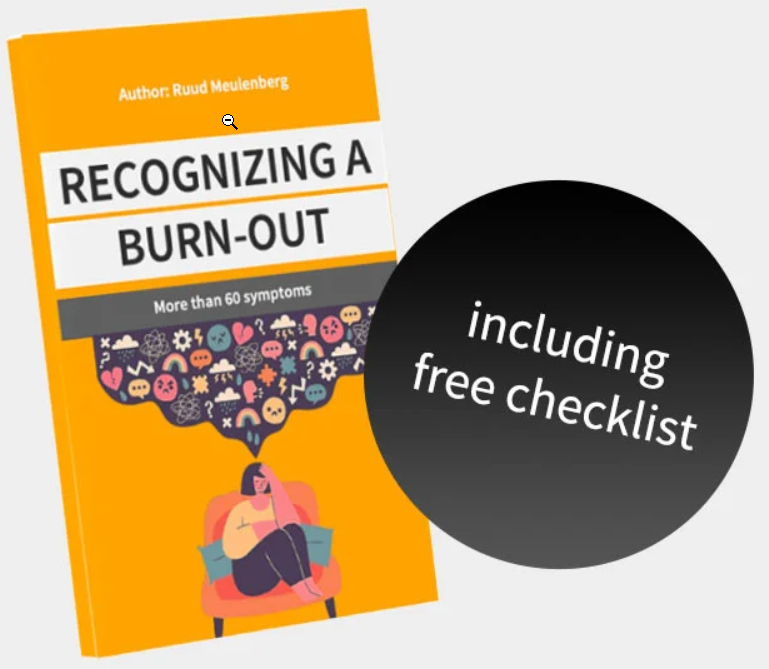As human beings, we often take on too much and have a difficult time saying no. We are taught to be kind and helpful to other people, so much so that sometimes we forget we need to take care of ourselves. The concept of working hard to achieve results also plays a crucial role. This is where setting boundaries comes in. By setting them, we can manage our stress levels and lead healthier, happier lives.
In this article we will discuss the concept of boundaries, their link to stress, tips for creating healthy ones, and finally, where to get help with managing stress.
What Are Boundaries?
They refer to the personal limits individuals set for themselves in various areas of their lives, such as relationships, work, and personal space [1]. These limits define what is acceptable or unacceptable behaviour from others and themselves.
They help individuals communicate their needs and expectations effectively, prioritise their well-being, and maintain healthy relationships. Boundaries can be physical, emotional, or mental and vary depending on personal values and beliefs.
Why Are Boundaries Important?
Boundaries are like personal rules that help individuals set limits in various aspects of their lives. These rules aid in defining acceptable and unacceptable behaviour from both others and themselves. They enable individuals to prioritise their needs and well-being, maintain healthy relationships, and reduce conflicts and distress.
Lack of personal rules, or limits, can make individuals feel overwhelmed or powerless, leading to negative emotions and behaviours.
Can we help you?
Leave us your information and one of our coaches will contact you in 24H

The Link Between Stress and Boundaries
Stress, also known as distress, is the body’s natural response to external and internal stimuli perceived as threats or challenges. Factors like work issues, financial strain, health worries, or relationship conflicts can trigger stress. Surprisingly, a lack of boundaries can also contribute to stress.
Unclear or weak limits, or personal rules, can heighten stress levels. Individuals might feel taken advantage of in certain situations, resulting in distress, anxiety, or frustration. Additionally, unclear personal space can contribute to unhealthy relationships, making it challenging for individuals to express their needs or prioritise their well-being.
Persistent distress can lead to physical, emotional, and psychological health problems, including anxiety, depression, cardiovascular disease, and a weakened immune system. Therefore, it’s crucial to establish clear personal limits promptly if they are currently absent in your life.
Causes of Lack of Boundaries
There are many reasons why you might have a lack of them and some examples are shown below.
Upbringing
The way we were raised can have a significant impact on our ability to set limits. If we grew up in a household where personal spaces were not respected, or if we were taught to always put others’ needs before our own, we may struggle with setting healthy limits as adults.
Fear of Rejection
Many people have a fear of rejection and may avoid setting limits because they worry that others will not like them or will think they are being selfish. This fear can lead to a lack of assertiveness and can make it difficult to communicate our needs and limitations to others.

Co-Dependency
Co-dependency is a pattern of behaviour in which a person relies on others for their sense of self-worth and validation. Co-dependent individuals may struggle with setting personal limitations because they feel that they need to put the needs of others before their own in order to feel valued and accepted.
Low Self-Esteem
Low self-esteem can make it difficult to set space because we may not feel worthy of having our needs and limitations respected. We may also worry that others will judge us or reject us if we assert ourselves.
Lack of Awareness
Some people may simply be unaware of what healthy limits look like or how to set them. They may not have been taught these skills growing up or may have never had a role model for healthy boundary-setting.
Trauma
Trauma can have a profound impact on our ability to set guidelines for ourselves. If we have experienced abuse or neglect, we may struggle with trusting others or may have a heightened sense of danger. This can make it difficult to set healthy ones and can lead to a lack of assertiveness.
Cultural Expectations
Cultural expectations can also play a role in our ability to set personal space. For example, in some cultures, it may be expected that women put the needs of their family before their own or it may be expected to have a very successful career. These cultural expectations can make it difficult to assert our own needs and limitations.
The Impact of Poor Boundaries
This can significantly impact an individual’s well-being, relationships, and overall quality of life. There are many different types of impacts that can result from weak or unclear boundaries, and these impacts can affect people differently depending on their circumstances. Here are some of the effects that result from the lack of personal limits.
Problems in Relationship
Not setting boundaries can make you feel overwhelmed at work, leaving less time for loved ones. In personal relationships, an imbalance and a sense of losing yourself can result from not having clear limits.
When your personal space feels invaded, whether physically or emotionally, it can lead to discomfort. For instance, if others intrude on your private information, it might create feelings of resentment. Regardless of why boundaries aren’t set, the result can be unhappiness, leading to personal distress and conflicts with those around you.
Overcommitment
This happens when people feel obligated to say yes to requests or feel guilty when they say no. This can lead to overwhelming distress and anxiety as they struggle to manage their workload or meet their obligations. Overcommitment can also lead to burnout, as individuals may prioritise others’ needs over their well-being, leading to exhaustion and decreased motivation.
Burnout
This is a state of emotional, physical, and mental exhaustion that results from prolonged distress, overwork, or inadequate self-care. Burnout can occur when individuals prioritise others’ needs over their well-being, leading to overwhelm, hopelessness, and detachment.

Download our
free e-book
Recognizing a burnout
(more than 60 symptoms)
It can affect individuals in various aspects of their lives, including work, relationships, and personal interests. Symptoms include fatigue, irritability, cynicism, decreased motivation, and reduced productivity.
Benefits of Setting Boundaries
Limit creation can have numerous benefits for our mental health and well-being. These include reduced feelings of overwhelm and stress, a sense of empowerment as we create a sense of control over our lives, improved self-esteem and increased levels of happiness.
Behaviours to Change for Healthy Boundaries
Here are some behaviours to stop as quickly as possible in order to create healthy personal space:
- People-Pleasing: It’s essential to stop people-pleasing, as it makes setting boundaries challenging. Remember, it’s okay to say no, and you don’t need to please everyone.
- Avoiding Conflict: Avoiding conflict can lead to resentment and can make it difficult to communicate your needs and limitations. Remember that conflict is a normal part of relationships and can actually lead to growth and understanding so stop avoiding it.
- Over-Committing: Over-committing can lead to overwhelm and can make it difficult to prioritize your own needs. Remember that it is okay to decline invitations or requests that do not align with your values or priorities.
- Sacrificing Needs: Sacrificing your own needs can lead to eventual burnout. Remember that it is important to prioritise your own needs and to communicate them to others.
Tips for Creating Healthy Boundaries
This takes practice, but it is an important skill to develop. Here are some tips for creating healthy personal limits:
- Identify Values and Priorities: Before you can set boundaries, you need to know what is most important to you. Take some time to reflect on your values and priorities, and then use this information to guide your boundary-setting.
- Clear Communication: It’s important to be clear and direct with others. Use assertive language to communicate your needs.
- Practice Self-care: Taking care of yourself is essential to maintaining healthy boundaries. Make time for activities that bring you joy and relaxation and prioritise your physical and mental health.
- Say No: It can be difficult to say no, but it is important to remember that it is okay to decline requests or invitations that do not align with your values or priorities.
Getting Help
If you find it challenging to handle stress or establish boundaries, various resources are accessible to assist you.
- Therapy: Seeking guidance from a stress coach, counselor, or psychologist can be a valuable tool in managing stress and creating healthy personal limits.
- Support Groups: Joining support groups offers a sense of community and serves as a beneficial resource for stress management and boundary development.
- Self-help Resources: Numerous online self-help resources provide advice and guidance on creating boundaries and effectively asserting them.
Stress & burnout coaching; for 100% recovery!
Reducing stress and recovering from burnout is simply incredibly difficult. The coaches at Meulenberg Training & Coaching understand exactly what you are going through and know how tough it can be. They have often experienced it themselves! With their years of experience and expertise, they are ready to help you step by step toward a full recovery. The results of our one-on-one coaching and absenteeism training will benefit you for a lifetime!
FAQ
References
- uhs.berkeley.edu – What are Personal Boundaries? – Found on 10/06/2024
Link to a document on uhs.berkeley.edu






